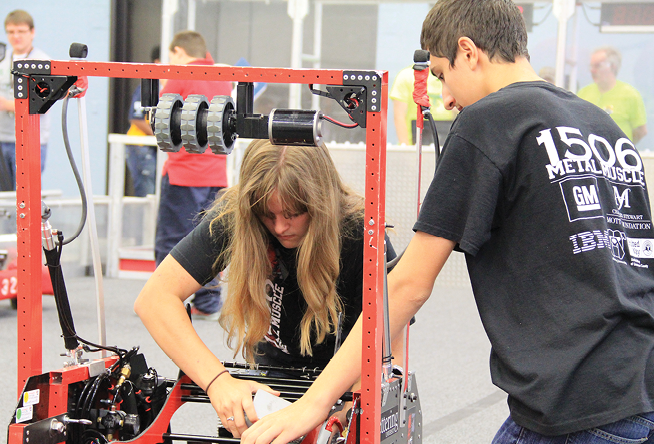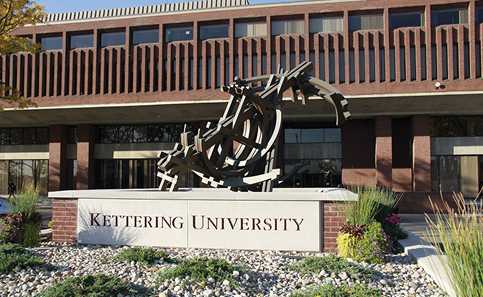- Home
- Media Kit
- Current Issue
- Past Issues
- Ad Specs-Submission
- Ad Print Settings
- Reprints (PDF)
- Photo Specifications (PDF)
- Contact Us


![]()
ONLINE

Engineering
and Science
Editors’ Note
Dr. Robert McMahan is also a Professor of Physics. Prior to this, he was the Founding Dean of the Kimmel School and Professor of Engineering at Western Carolina University. The Kimmel School is Western’s College of Engineering and Technology and, prior to that, Dr. McMahan was the Senior Advisor to the Governor of North Carolina for Science and Technology, and the Executive Director of the North Carolina Board of Science and Technology. In this role, he also acted as a Senior Advisor to the Secretary of Commerce, the General Assembly, and the Economic Development Board. Prior to his work with the Governor, he was a Senior Technology Strategist and Venture Capitalist for In-Q-Tel, a private venture capital organization funded by the CIA. Before joining In-Q-Tel, he was Executive Vice President of Engineering and R&D for GretagMacbeth, LLC. He joined GretagMacbeth after its acquisition in 2000 of McMahan Research Laboratories, the advanced technologies company which he founded in Cambridge, MA and later expanded to the Research Triangle Park of North Carolina in 1989. Dr. McMahan also held the position of Research Professor of Physics and Astronomy at the University of North Carolina at Chapel Hill from 1989-2010. Dr. McMahan received bachelors’ degrees in physics and in the history of art from Duke University in 1982, a Ph.D. degree in physics from Dartmouth in 1986, and completed postdoctoral studies at the Harvard University/Smithsonian Astrophysical Observatory Center for Astrophysics under the mentorship of Professor and MacArthur Fellow Margaret Geller.
Institution Brief
Kettering University (kettering.edu) is a premier engineering, science and business university dedicated to experiential learning and cooperative education, and is a national leader in preparing STEM entrepreneurs and innovators. U.S. News & World Report ranks Kettering among the nation’s finest specialty schools.
What excited you about the opportunity to lead Kettering University?
I have a career that encompasses both academia and public policy. I knew of the model at Kettering – it’s a real jewel nationally in higher education. It represents some of the best undergraduate curricula in the sciences in the U.S.

Students from Metal Muscle (Team 1506) working on a robot
during the dedication of the FIRST Robotics Community Center
at Kettering University on September 19, 2014.
The opportunity to play a role in the institution was very compelling, as was the opportunity to help position the institution to be a very meaningful and strong contributor to the economic redevelopment of Flint.
Is there a transformation occurring in Flint and what do you see as the opportunities for the future of the city?
We have alumni come back to the city after being away for some time and they are astounded by the positive things happening here. The downtown area is vibrant with restaurants and nightlife and art walks in the evenings. There are farmer’s markets and a new theater. The University rebuilt an athletic facility that is used by high schools and colleges, as well as semi-professional teams.
The community has had challenges and continues to work through those, but the foundation is strong.
When communities come back and flourish, it really comes down to the people – they are determined not to fail here.
As an institution, we are building facilities and creating park space, as well as opening restaurants for the community to use.
When the commitment to a city is there, it ultimately does succeed.

Orbits of Isaac with the Kettering University Wordmark
displayed in front of the Campus Center
How critical is it that Kettering is adapting its curriculum to ensure students are prepared for the jobs of the future?
It’s critical, but Kettering is one of the top-ranked engineering and science schools in the nation. We have over 1,000 alumni who are active leaders of organizations in all industries. Part of our educational formula is that all of our students are engaged in a cooperative experience over the course of their entire education. We work closely with over 600 companies worldwide and our students are employed with them for their entire time at the university.
What this gives us is an intimate understanding of what business and industry need in terms of skill sets. We’re acutely aware of those needs and are always adapting what we do as the disciplines in engineering and science shift.
Are young women moving into STEM?
Yes, and they’re doing so in some dynamic ways. One of the ways we engage young women is through the FIRST Robotics Community Center which we created several years ago. It’s dedicated to high school students in the Flint region. Our curriculum here starts in fifth grade and we have students coming in through high school. We also teach the teachers.
Programs like this are effective in inspiring young women to pursue careers in STEM.
Young women tend to concentrate on areas of engineering that have a connection to human health or to improving the human condition. Some disciplines within engineering are not at gender parity but some are majority female. It depends upon specific desires of the individual students.
Women are now going into areas like biomedical engineering, bioengineering and chemical engineering.•